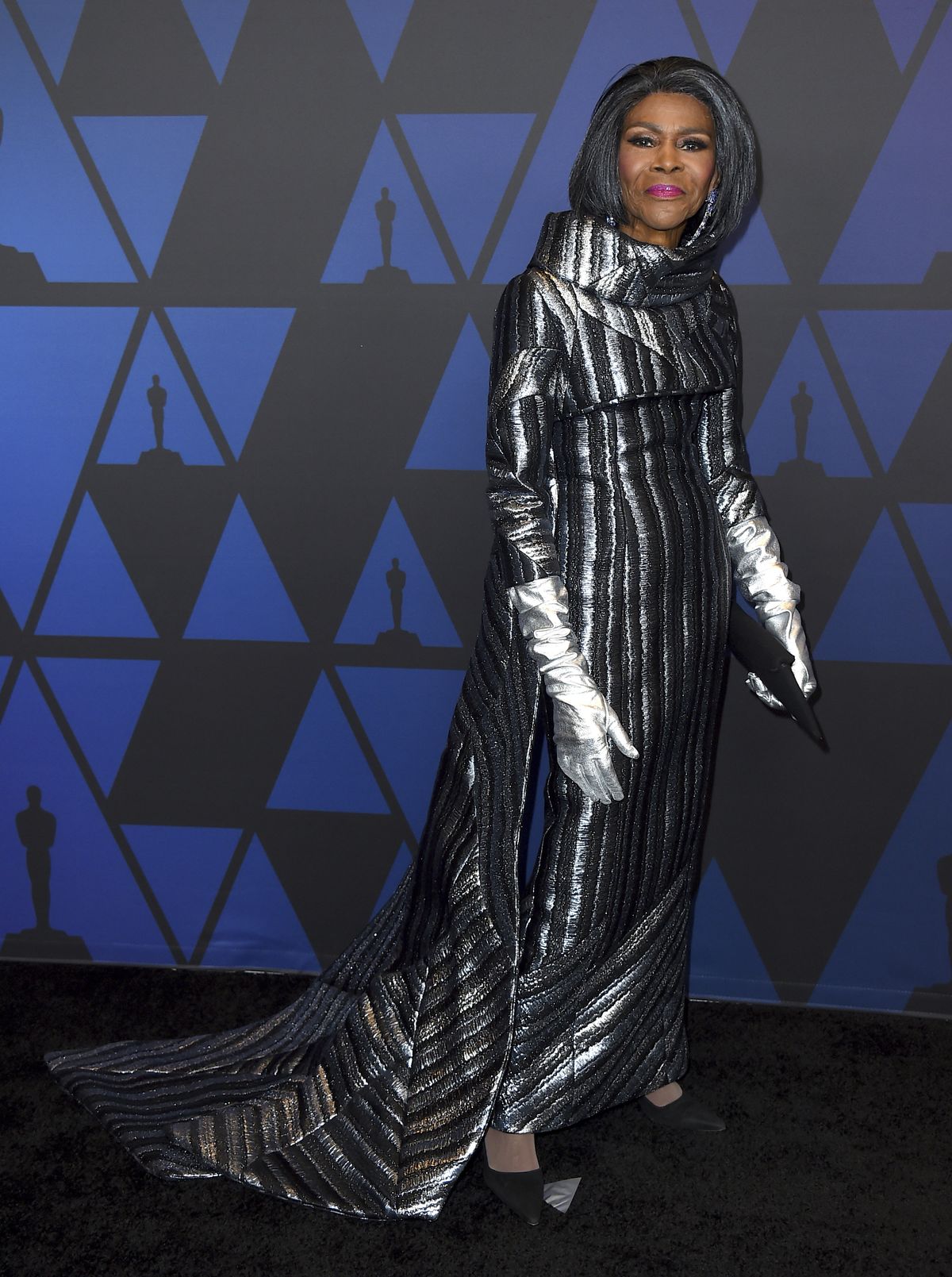Review: Cicely Tyson and a life well lived

My grandmother, Dorothy M. Holmes, would have been 78 years old this year. She was a Lowcountry pastor who carried with her a set of Bible-based mantras she’d committed to memory. She revered her God fiercely and wasn’t ashamed to tell anyone with whom she came into contact about how good he’d been to her.
Iconic actress Cicely Tyson’s memoir, “Just as I Am,” reminded me of her – of that special way Black women of a certain age love their God, of their unyielding faith and duty to be good stewards of life’s blessings. I stand in awe of what these women have witnessed and endured, given to the world and left as their legacies. I’ve long made peace with the idea that the world may never know my grandmother’s name or the particulars of her story. But by Tyson detailing hers – in a book released Tuesday, just two days before her death Thursday at the age of 96 – many will know what women like her survived.
“Just as I Am” is a 400-page chronicle of a history as American as apple pie, as Black as the dead of night, as rich, surely, as Tyson’s favorite meals, oxtails and okra, cooked up by her late ex-husband Miles Davis. While undoubtedly personal – or “plain and unvarnished, with the glitter and garland set aside,” as Tyson writes in the book’s introduction via her skilled collaborator Michelle Burford – it’s a universal accounting of just how far we’ve come in Tyson’s near-century of life, and how far we still must go.
Tyson wasn’t sure she should write a memoir. She had long adopted a quote from trailblazing civil rights activist Barbara Jordan, who said she’d only write a book “when I have something to say.” With “Just as I Am,” after a 60-plus-year career in show business, Tyson finally gives us the honor of knowing, in the words of the Clara Ward gospel hymn, how she got over.
Born in Harlem in 1924 to immigrant parents from Nevis in the West Indies, Tyson had already lived a full life by the time she became a model and actress. She’d gotten pregnant at 17, been forced to marry her child’s father at 18 and divorced long before she found a job in the typing pool at the Red Cross. Then, on a fateful day in 1954 during her lunch break, a “Black man decked out in a business suit and a scarlet bowtie tapped me on the shoulder.” Struck by her beauty, a word that was foreign to a 30-year-old, dark-skinned Tyson whose features “historically nullified one’s gorgeousness,” he asked if she was a model. It was the kind of happenstance interaction anyone would likely write off as a weird New York City occurrence. But in retrospect, Tyson calls it a “love note from heaven.” The inquiry jump-started a new chapter in her life.
“Just as I Am” is packed with details from Tyson’s personal and professional journeys few have known: the abuse her father inflicted on her mother; the behind-the-scenes particulars of her legendary (yet poorly compensated) roles in projects like “Sounder,” “The Autobiography of Miss Jane Pittman” and “Roots,” among many others; the sacrifices she made to provide for her daughter; her tumultuous on-again, off-again relationship with Miles; and how she accomplished all of it against a backdrop of white supremacy, anti-Blackness and sexism that many are just now recognizing still exists.
What’s clear is that Tyson has lived, and continues to live, a life of impact. She inspired Viola Davis’ career, according to the Oscar winner’s heartfelt foreword, and prompted Tyler Perry to name one of his 12 soundstages after her (alongside the likes of Ruby Dee and Ossie Davis, Della Reese and Diahann Carroll). Months after being named a Kennedy Center honoree, President Barack Obama bestowed upon Tyson his last Presidential Medal of Freedom. In “Just as I Am,” Tyson reveals what it’s like to be on the receiving end of all these accolades.
But what shines most from the memoir is how Tyson’s story, while frankly written and supremely eye-opening, isn’t just her own. It’s also the story of Black women in America, of generations past, present and yet to come, whose wills to survive are divinely gifted and ancestrally guided. Perhaps that’s why, in the last pages of the book, she speaks directly to her proverbial sisters and daughters, nieces and grandchildren, revealing what she hopes her legacy will be, whenever God calls her home.
“I want to feel as if I embodied our humanity so fully that it made us laugh and weep, that it reminded us of our shared frailties,” she says. “I want to be recalled as one who squared my shoulders in the service of Black women, as one who made us walk taller and envision greater for ourselves.”
I think it’s safe to say she’s done that, for Black women and many others. A good and faithful servant she’s been, and we’re all the better for it.
Tre’vell Anderson covered diversity in Hollywood for the Los Angeles Times. Their writing has appeared in Esquire, Teen Vogue, Essence and Out.